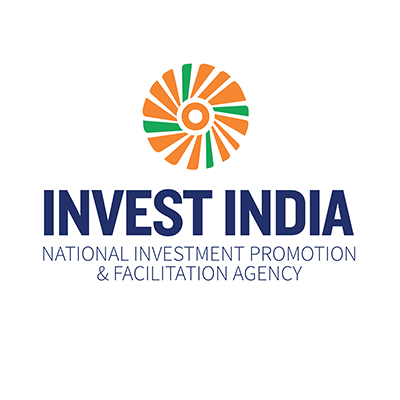Indian foundries’ output 11 MT in 2018

The foundry market in India is expected to expand at a CAGR of about 12.7% during 2018-2023, according a report by ResearchAndMarkets.
Casting production reached 11 million tonnes in 2018, said the report released 27 Mar 2019.
The automobile sector consumes around 40% of castings produced in India.
As of 2018, aluminum castings contributed around 15% of the total castings production in the country.
The share is expected to increase considerably by the end of 2023, owing to a shift in demand from iron to lighter castings materials for manufacturing fuel-efficient automobiles and electronic vehicles (EVs).
Expansion of infrastructure by the government is expected to generate demand for a wide variety of machinery and equipment such as cranes, fans, motors, appliances, pumps, conveyor equipment, etc. which, in turn, will create fresh demand for metal castings.
The major foundry clusters are located in Batala, Jalandhar, Ludhiana, Agra, Pune, Kolhapur, Sholapur, Rajkot, Mumbai, Ahmedabad, Belgaum, Coimbatore, and Chennai, among other Indian cities. Each of these foundry units caters to some specific end-use market.
The Coimbatore cluster is famous for pump-set castings, the clusters in Kolhapur and Belgaum are known for automotive castings, and the Rajkot cluster is famous for diesel engine castings. Some of the notable companies producing metal castings include Electrosteel Castings Ltd, Hinduja Foundries Ltd, Nelcast Ltd, and Tata Metaliks Ltd among others.
End-user segment growth insights:
Automotive: The foundry market is linked directly with the development of the overall automotive sector. Growth of the automobile industry is expected to generate huge demand for castings producers.
Based on volume, India is currently the fourth largest automobile industry, globally. Rapid growth of the automotive sector has also led to the steady development of other subsidiary industries like the auto component industry, indicating huge demand for castings.
Pipes & Fittings: The pipe sector in India is poised for steady growth due to substantial investments and capacity additions. Companies produce a wide range of steel, cement and PVC pipes, which are used in various industries. Demand for castings is expected to expand with the growth of the pipes and fittings market in India.
Power: Consistent power supply and availability of quality electrical equipment are necessary for the growth of the Indian economy from a global perspective. As of December 2018, India had a power generating capacity of ~349.28 GW. The Government of India has targeted an addition of ~88.5 GW under the 12th Five-Year Plan (2012-2017), and another ~100 GW under the 13th Five-Year Plan (2017-2022). The foundry industry is expected to benefit from such power generation installations.
Government Initiatives
A Vision Plan 2020 has been initiated by The Institute of Indian Foundrymen (IIF) to recommend the needed initiatives for rapid growth and emerge as a leading supplier of quality castings in the global market by 2020.
An implementing agency for the India Foundry Mission (IFM) will have full authority to represent it, demonstrate the pilots and implement recommendations, and monitor market growth.
Key growth drivers of the market:
Foundries across India are presently upgrading facilities and technologies in a bid to improve their productivity and increase their capacity.
To cater to the growing demand, this industry is embarking on major expansions and technological initiatives, with investments of over Rs.10 billion since 2011.
Majority of the foundry units in India fall under the MSME sector, which has registered consistent growth over the years. There are around 51 million MSME units spread across the country. About 55.3% of the MSMEs are based out of rural areas, indicating the deployment of a significant rural workforce in the MSME sector.
Re-implementation of Public Procurement Policy, Pradhan Mantri MUDRA Yojana, Make in India, Startup India, and Skill India initiatives are helping in the growth of the MSME sector in the country.
Key Deterrents to the Growth of the Market
Since most of the castings manufacturing units fall under small and medium enterprises (SMEs), they cannot use advanced technological equipment or automation due to high costs, thus limiting their marketing strength.
It is challenging for them to sustain their position in the global marketplace. The inability to meet the domestic demand for castings and to supply quality products to the global market acts as a huge barrier for the industry to grow further.
The industry’s leading companies are: Ashok Iron Works Private Limited, Brakes India Private Limited, DCM Engineering Limited, Electrosteel Castings Limited, Hinduja Foundries Limited, Jayaswal Neco Industries Limited, Menon and Menon Limited, Nelcast Limited, Sanmar Foundries Limited and Tata Metaliks Limited.
Comparatively, global castings production witnessed an increase of ~5.3% from 2016 and was ~110 million tonnes in 2018.
Based on total output, Russia had the highest growth in 2017, with an increase of ~8.3% in production from 2016.
China increased its production by 2 million tonnes, reaching a total of 49.4 million in 2017.
Increasing production of light vehicles worldwide is acting as a key growth driver for the global foundry market. The growth in production of light vehicles is expected to increase demand for new cast metal parts, across the world. It would also lead to the replacement of old metal casting products with more energy efficient metal casting solutions. fiinews.com









